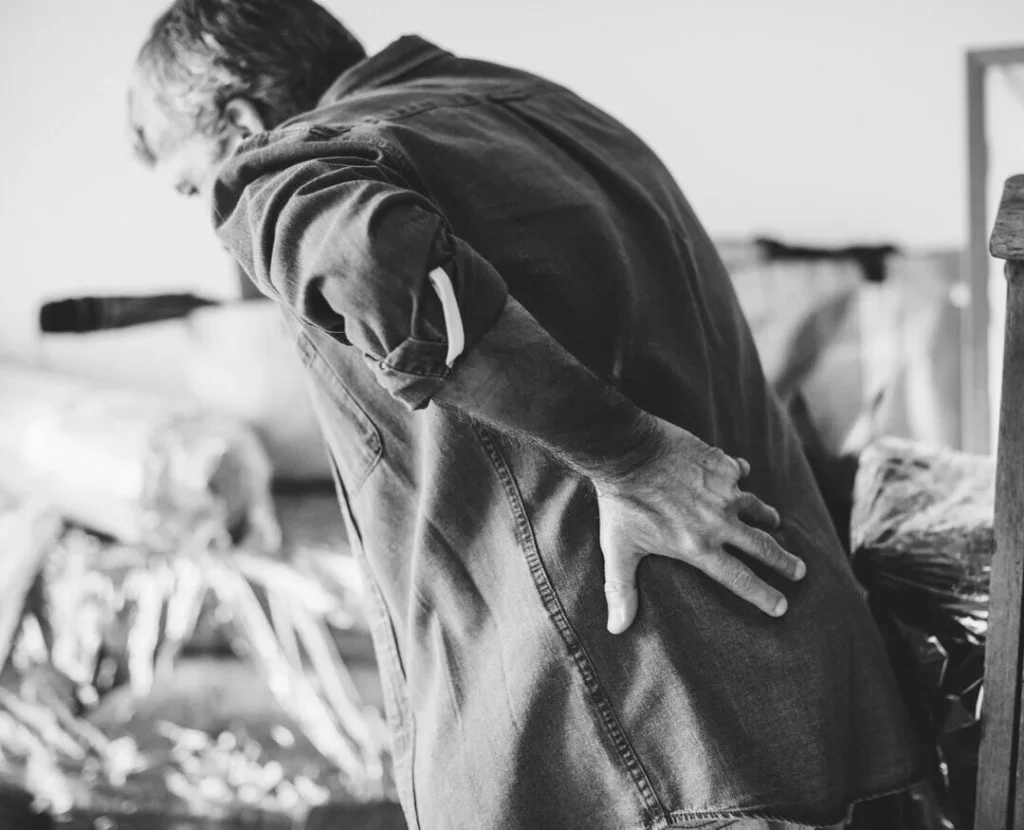Waking up with upper back pain can be a frustrating and disheartening experience. Instead of feeling refreshed and ready to tackle the day, you’re left dealing with discomfort that can hinder your activities and mood.
But don’t worry – by understanding the causes of upper back pain after sleeping and exploring effective remedies, you can start your day with relief and comfort.
Read on!
Sleeping Position and Mattress
When we sleep, our body needs to be in a neutral and relaxed position. This helps to alleviate pressure on our muscles and joints. However, if you sleep in a position that puts strain on your back or neck, it can result in pain and discomfort.
To prevent upper back pain from sleeping, it’s important to find a comfortable and supportive sleeping position that works for you. This may involve experimenting with different positions such as on your:
- back
- side
- stomach
Additionally, the type of mattress you sleep on can also play a role in causing upper back pain. A mattress that is too firm or too soft can create pressure points on your body. This can lead to discomfort and pain.
It’s recommended to invest in a high-quality mattress that provides adequate support for your back and promotes proper spinal alignment.
Pillow Support
In addition to your sleeping position and mattress, the type of pillow you use can also contribute to upper back pain. For example, using a pillow that is too high or too flat can put strain on your neck and shoulders. This can cause tension in your upper back.
To prevent this, opt for a pillow that provides proper support for your head and neck. Memory foam pillows are a popular choice as they contour to the shape of your head and neck. Thus, providing customized support.
Pillows can also be used strategically to support different areas of your body while sleeping. For instance, placing a pillow between your knees when sleeping on your side can help keep your spine in a neutral position and reduce strain on your back.
Muscle Tension and Stress
Muscle tension and stress can also play a major role in causing upper back pain after sleeping. When we are stressed, our muscles tend to tense up. Thus, leading to discomfort and pain. This tension can be exacerbated by poor sleeping habits.
To combat muscle tension and stress, practicing relaxation techniques can help relax your muscles and promote better sleep. This includes deep breathing exercises or meditation before bed. Additionally, incorporating regular exercise and stretching into your daily routine can also help alleviate tension in the muscles.
This is particularly important for those who have sedentary jobs. It goes the same for those who have a lot of time sitting throughout the day. Taking breaks to stretch and move around can help prevent muscle tension from building up and causing pain.
Spinal Misalignment
Another common cause of upper back pain after sleeping is spinal misalignment. This can occur due to a variety of factors such as:
- poor posture
- injury
- underlying medical conditions
To address this issue, it’s important to consult with a healthcare professional who can help identify the root cause of your spinal misalignment and provide appropriate treatment options. Chiropractic care and physical therapy are often recommended to help realign the spine and alleviate upper back pain.
Underlying Conditions
In some cases, upper back pain after sleeping may be a symptom of an underlying medical condition such as arthritis, fibromyalgia, or a spinal disorder. If your pain persists or becomes severe, it’s important to seek medical advice and undergo proper testing to identify any potential health concerns.
If you experience upper back pain when coughing, for example, it could be a sign of a more serious condition such as a herniated disc. It’s always best to address any persistent or severe pain with the help of a medical professional.
Moreover, maintaining a healthy and active lifestyle can also help prevent or manage these conditions, ultimately reducing the risk of experiencing upper back pain after sleeping. This includes incorporating a balanced diet, regular exercise, and proper posture into your daily routine.
Physical Activity and Stretching
Incorporating regular physical activity and stretching into your daily routine can help prevent and alleviate upper back pain after sleeping. Engaging in activities such as yoga or Pilates can improve flexibility, strengthen your core muscles, and promote better posture.
Stretching before bed can also be beneficial in relieving tension in the muscles and promoting relaxation for a more restful sleep. Focus on gentle stretches that target the upper back, shoulders, and neck areas.
There are sleeping pain relief products that can help alleviate upper back pain caused by physical activity. For example, a heating pad or ice pack can provide temporary relief by reducing inflammation and promoting blood flow to the affected area.
Sleep Environment
Your sleep environment can also play a role in causing upper back pain after sleeping. A room that is too hot or too cold can disrupt your sleep and lead to muscle tension. It’s important to maintain a comfortable temperature and keep your room dark and quiet to promote better sleep.
Additionally, investing in a supportive mattress, pillow, and bedding can greatly improve your sleep environment and reduce the risk of experiencing upper back pain. This includes using a body pillow for extra support, especially if you tend to sleep on your side.
Bedtime Routine
Your bedtime routine can also impact the quality of your sleep and potentially contribute to nighttime back pain. Avoiding caffeine and heavy meals before bed, creating a relaxing atmosphere, and establishing a consistent bedtime routine can all help promote better sleep.
Furthermore, incorporating relaxation techniques such as taking a warm bath or listening to soothing music can help prepare your mind and body for a restful night’s sleep. It’s also important to avoid using electronic devices before bed, as the blue light emitted can disrupt your sleep patterns.
Understand Upper Back Pain After Sleeping
Experiencing upper back pain after sleeping can be a frustrating and uncomfortable experience. However, by understanding the potential causes and implementing effective remedies, you can alleviate your discomfort and start your day feeling refreshed and pain-free.
Remember to listen to your body, take breaks when needed, and prioritize getting enough sleep to maintain a healthy lifestyle overall. Sweet dreams!
If you want to read more, visit our blog. We have more topics!







